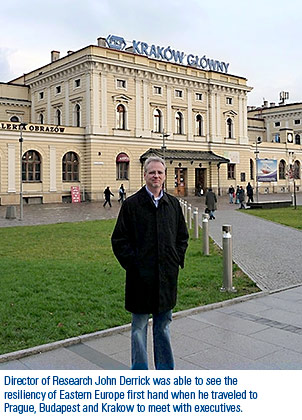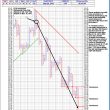When it comes to emerging markets, director of research John Derrick has become the “go-to” guy for VoiceAmerica’s “Emerging and Frontier Markets Investing with Gavin Graham.” Over the past couple of weeks, here are a few of the most important topics that John discussed with host Gavin Graham:

Q. As the turmoil in Syria erupted, has there been much impact in emerging markets?
A. I think the biggest impact has been on Russia with higher oil prices. Russia is the biggest beneficiary, at least in the Eastern European and emerging region, and that is due to these higher oil prices along with the knock-on effect it has had throughout the economic unrest in the Middle East.
There is also another big opportunity for Russia as we talk about energy going forward. You’re seeing LNG projects moving forward and you’re seeing pipeline projects moving forward in China as well. Those are big, important steps for Russia to diversify its revenue base.
 Q. There is news that Western Europe has finally emerged from recession. Has this also happened to markets in Eastern European economies and other emerging and frontier markets?
Q. There is news that Western Europe has finally emerged from recession. Has this also happened to markets in Eastern European economies and other emerging and frontier markets?
A. We now have positive growth out of the eurozone. Indicators out of Germany have been better, industrial production has been better and sentiment indicators have also definitely improved. I think a lot of these things take time, but a lot of people are starting to come around to the European-recovery story. And for the region, I think this economic uptick has trickled down to everyone.
The improvement in Europe is broadly positive for emerging markets. If you look at historical relationships between European economic activity, you will see a tighter correlation with emerging market economic activity than you will with that of the U.S. If we can get Europe growing again, that will be a positive dynamic for emerging markets. That helps China for one, which in turn helps a slew of other countries.
Q. Often when we look at emerging and frontier countries, they look like great investment destinations that we want to be in now. Is it possible though, that one of the downsides to an increased interest in emerging and frontier markets is the large number of growth estimates out there, especially with a pretty wide range in some cases?
A. As far as economic forecasts go, there can definitely be wide ranges. We try to focus on what is a likely sustainable trend and whether you have government policies that are going to be supportive of that trend. A good example is China because I know there are a lot of questions about the validity and accuracy of some of its numbers. You need to dig a little deeper than GDP, and really try to verify activity levels.
You need to look at whether government policies are supportive of whatever the estimates are. China is expected to grow 7 or 7.5 percent this year, but it is fairly restrictive on the monetary front and even on the fiscal front as well. There is always risk that it may not actually reach those targets. It’s a nuance type of view that you have to take with a lot of these countries.
Every week, Gavin brings together experienced money managers, journalists and analysts to discuss global events, pinpointing opportunities in the market and expanding investors’ knowledge. If you haven’t had the chance to tune in, the full-length version of all the programs can be found on VoiceAmerica’s website.
Don’t miss these related Frank Talk posts.
- On LNG opportunities in Russia: Why It’s Hard to Ignore Russia
- On Europe: Look for these European Stocks to Exert a Lot of Horsepower
- On China: 5 China Charts that Look Bullish for Commodities
All opinions expressed and data provided are subject to change without notice. Some of these opinions may not be appropriate to every investor. By clicking the link above, you will be directed to a third-party website. U.S. Global Investors does not endorse all information supplied by this website and is not responsible for its content.














